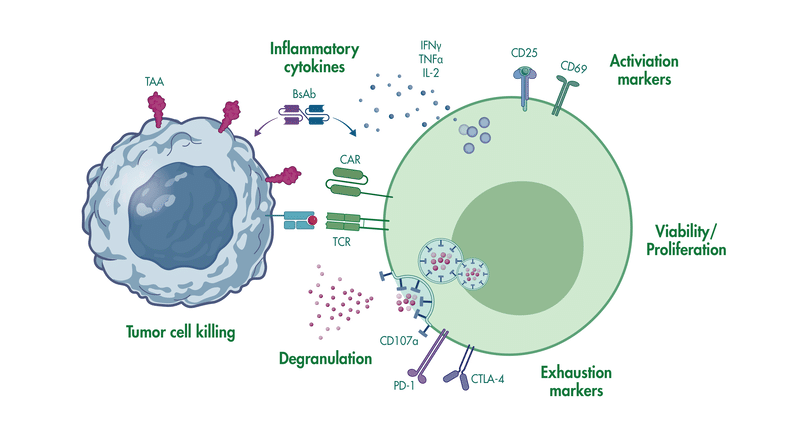Immuno-Oncology Assays
The immuno-oncology assay suite from Reaction Biology enables researchers to understand how a new drug candidate modulates the immune response against tumor cells. Our immune cell-based assays are comprised of killing assays that elucidate the potency of immunotherapies, either via bringing the cytotoxic immune cells into the proximity of tumor target cells or via promoting tumor cell killing via T cell activation or overcoming tolerance.
Immune cells have distinctive ways of recognizing malignant cells as targets and thus we have developed immune cell-based killing assays utilizing T cells and NK cells. We are also in the process of developing monocyte-based killing assays.
Our immune cell assay services characterize immune cells by their proliferation, polarization, or activation status. Many of these services can be custom-tailored to the specific needs of each research project.
Reach out today to discuss your immuno-oncology research needs with our scientists.

